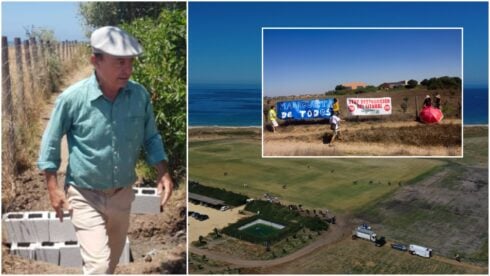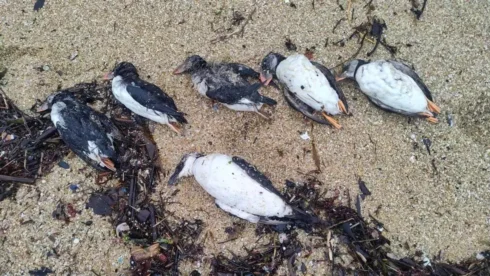RISING thermometer readings are not only affecting mainland Spain, but they are also having a significant impact on the Mediterranean Sea.
So far this summer, Spain has endured two heat waves, with a maximum of 44.8ºC recorded on July 12 in Almeria and the country is currently going through a third heat wave, with highs of 45ºC expected today, Wednesday July 19, in some coastal areas along the Costa del Sol.
Analyses by the Centre for Environmental Studies of the Mediterranean (CEAM) show that in recent days the temperature of the Mediterranean Sea has also risen rapidly.
Last Monday saw the Dragonera buoy in the Balearic Islands recorded a temperature of 29ºC, the highest since the start of the summer. Meanwhile, the Cabo de Palos buoy, in Murcia, reached a maximum of 28.80ºC.
Up until now the 2023 stats for the Mediterranean Sea water temperature were below those reached in 2022. However, over the last few days this situation has changed.
In fact, since last weekend the average water temperature readings are above those registered since 1982, when records began.
Last summer, 2022, was marked by the high temperatures recorded both on mainland Spain, and at sea with the Dragonera buoy in the Balearic Islands recording a sea temperature over 30ºC.
Additionally, data from the Mar Menor Monitoring Committee showed an average temperature of 31.25ºC, the highest ever recorded since records began, exceeding the 30.85ºC recorded in 2016, with highs of 32.4ºC registered.
Unfortunately, everything points that these recordings will be surpassed this summer and these rising thermometer readings are negatively affecting marine ecosystems all over the planet.
READ MORE:
- HEATWAVE: How sea temperatures around Spain are rising and threatening marine life
- Official guide to keeping cool as Spain suffers in third heatwave of the summer
Click here to read more Environment News from The Olive Press.








